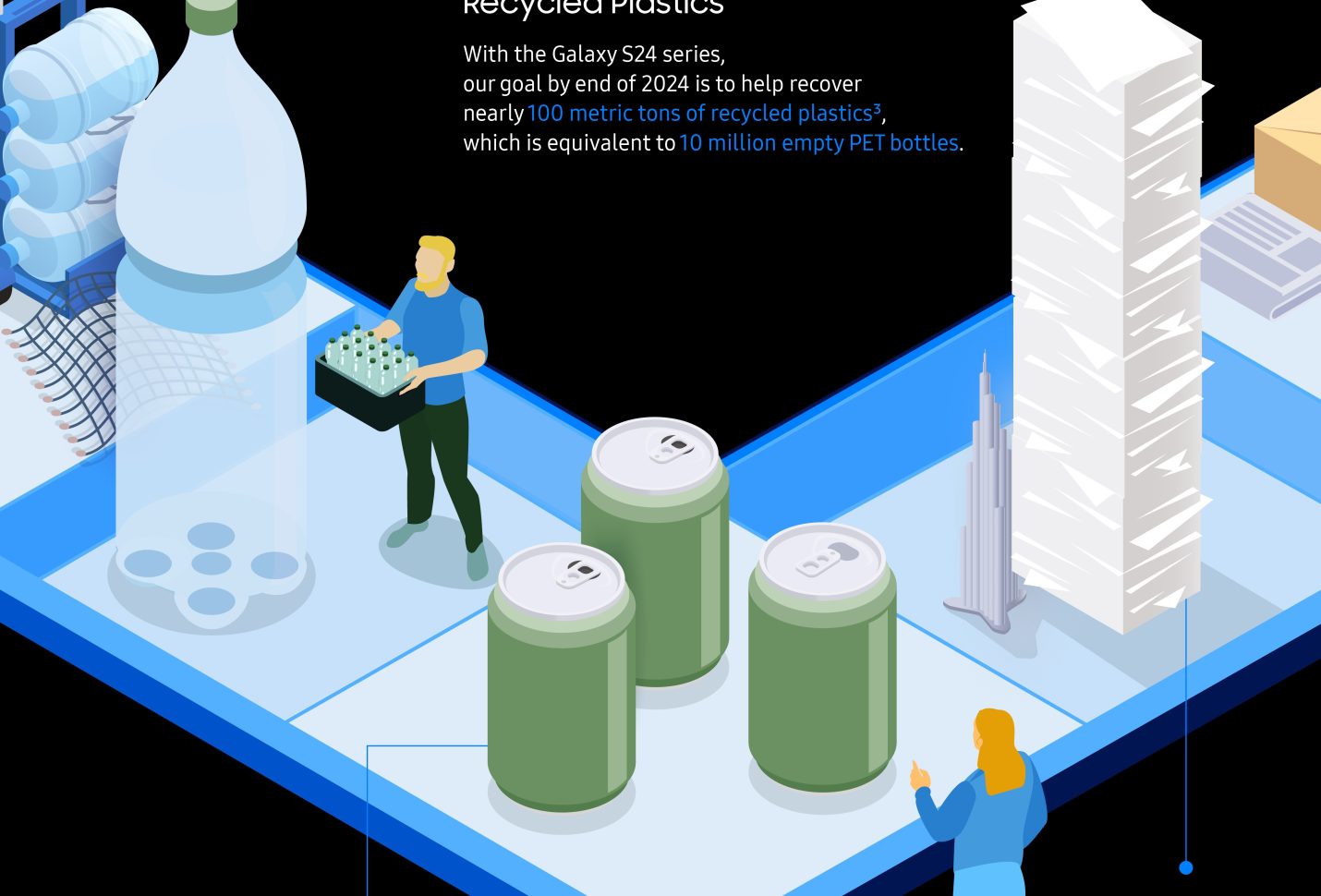
EBRD extends $ 21.3 m loan to Red Sea wind energy farm in Egypt
The European Bank for Reconstruction and Development (EBRD) is supporting the development and sustainability of ...

Samsung marks the Earth Day by shedding light on increasing the use of recycled materials in its Galaxy mobile devices in addition to collaborating with the United Nations Development Program (UNDP) to support young changemakers on the frontlines of climate change who are delivering meaningful progress for its collective future.
Through Generation17, Samsung elevates their platforms to a global scale and inspire them through mentorship, peer learning and networking.
Samsung spotlighted some of its incredible Generation17 Young Leaders and their work to address environmental challenges, including Máximo Mazzocco, a leading climate activist from Argentina, is the founder of Eco House — a non-governmental organization that specializes in educational and ecological restoration programs.
Young leaders also include Tamara Gondo, a Young Leader from Indonesia, started Liberty Society — a social enterprise that empowers and trains marginalized Indonesian women on how to upcycle materials and turn them into sustainable goods. AY Young, a performer from the United States, created the Battery Tour to raise awareness around the importance of sustainable electricity and provide solar-powered batteries to communities in need.
Samsung is reimagining how Galaxy technology is designed and packaged to do more with less when it comes to the planet’s natural resources. For the last decade, Samsung has worked to innovate high-performance components that are made with recycled materials.
Samsung took an important step in 2022 when it incorporated recycled discarded fishing nets, also known as ghost nets, in the Galaxy S22 series. Recycled materials can now be found in all Galaxy mobile products, including smartphones, tablets, PCs and wearables. At the same time, Samsung has expanded its use to a greater variety of materials, from several different types of plastics to metals and glass.
The Galaxy S24 series takes these actions one step further. For the first time in any Galaxy device, Samsung developed key device components with recycled cobalt, rare earth elements and steel. The battery in the Galaxy S24 Ultra contains a minimum of 50% recycled cobalt, and 100% recycled rare earth elements and a minimum of 40% recycled steel were used in the speakers.
Samsung has a long history of addressing the pervasive challenge of plastic waste through its recycled material innovations, and recycled plastics continue to play an important role in the Galaxy S24 series. The Galaxy S24 series maintains its use of recycled plastics sourced from discarded fishing nets, water barrels and PET bottles.
The recycled ocean-bound plastic material was created in partnership with global organizations who collected discarded fishing nets abandoned near the oceans. The nets’ properties were separated, cleaned and extruded before optimizing them into high-performance, recycled polyamide pellets. Similarly, the recycled polycarbonate and PET materials are sourced from discarded water barrels and PET bottles that were ground, filtered and melted down with other additives. This process helps us transform these fragile resources into high-performance optimized materials that uphold Samsung’s state-of-the-art design and high-quality standards. Samsung also teamed up with other organizations to upcycle discarded Thermoplastic Polyurethane (TPU) that was generated from shoe manufacturing.
This is a culmination of our continued efforts with Samsung partners to transform fragile plastic wastes into high performance material used in Galaxy devices. With the Galaxy S24 series, Samsung’s goal by end of 2024 is to help recover nearly 100 metric tons of recycled plastics, which is equivalent to 10 million empty plastic bottles.
When it comes to recycled metal, the Galaxy S24 series incorporates recycled aluminum that originates from scrap metal generated during manufacturing. The aluminum scrap is re-melted, filtered for impurities and then recycled to make components within Samsung’s product development process. With the Galaxy S24 series, its goal by end of 2024 is to recover about 110 metric tons of recycled aluminum, which is the equivalent of 9 million soda cans.
Additionally, the Galaxy S24 series comes in a packaging box made using 100% recycled paper material. By the end of 2024, Samsung hopes to recover nearly 2,760 metric tons of recycled paper with Galaxy S24 series, which is equivalent of 552 million pieces of A4 paper. If stacked on top of one another, that would be approximately the same height as 71 Burj Khalifas,which is the tallest building in the world.
From the smallest components to the newest, most premium features, the Galaxy S24 series represents a significant stride in Samsung’s sustainability journey, and Samsung remains committed to scaling these innovations in years to come. This work will help Samsung shift to more circular designs and build technology that supports a more sustainable future.
The European Bank for Reconstruction and Development (EBRD) is supporting the development and sustainability of ...
The Food and Agriculture Organization of the United Nations (FAO), in partnership with the Azerbaijan ...
About 18 new green shipping corridor initiatives emerged worldwide in the last year alone – ...


اترك تعليقا